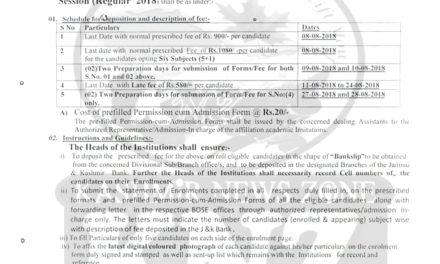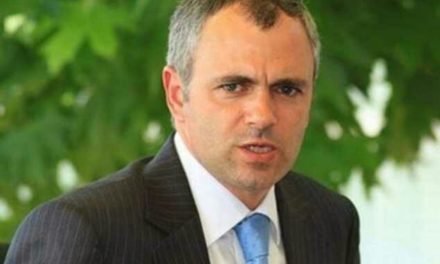![]()
Saves patients’ time, makes registration effortless, seamless, accurate: Official
Srinagar, Aug 10 (KNO): In a significant achievement, Jammu & Kashmir has generated around six lakh out-patient department (OPD) tokens through the innovative Scan & Share Queue Management System.
As per the news agency—Kashmir News Observer (KNO), this milestone was reached in just four months since the initiative was launched, highlighting the remarkable progress made under digital interventions in healthcare.
An official told KNO that since the launch of the facility, the total number of tokens generated through the Queue Management System has now reached an impressive 5,66,302. He said the active healthcare facilities have been performing exceptionally well, with a steady increase in token generation with each passing day.
The implementation of the Scan and Share QR-based OPD registration began in April this year, initially targeting Government Medical Colleges and Associated Hospitals during the first phase.
The programme was subsequently extended to include all district hospitals in the second phase and community health centres (CHCs) in the third phase.
Dr Shafqat Khan, Additional Director, Ayushman Bharat Digital Mission (ABDM) told KNO that 3,30,262 tokens have been generated in Government Medical Colleges and its associated hospitals. GMCH has generated the highest number of 46,730 tokens while Government Dental College Jammu has generated the lowest number of 846 tokens, he said.
In 13 district hospitals where such facilities are available, 1,93,512 tokens have been generated through the facility with 55,189 (highest) in District Hospital Ganderbal and 1,271 (lowest) in District Hospital Ganderbal, he said.
Giving further details, Dr Khan said that 42,528 such facilities have been generated in 26 community health centres where such facilities are available, with the highest in CHC Sarwal Jammu and the lowest in CHC Ghagwal.
In total, 5,66,302 tokens have been generated through the Scan and Share facility in Jammu and Kashmir Union Territory.
Dr Shafqat said the QR code-based rapid OPD registration service is being implemented by the National Health Authority (NHA) under its flagship scheme Ayushman Bharat Digital Mission (ABDM). This facility is ensuring quick and queue-less registration of the patients and saving time for patients as well, he said.
The patients scan the QR code using any health application of their choice (such as ABHA, Aarogya Setu, EkaCare) and share their ABHA profile (demographic information like name, age, gender, and ABHA number) with the Health Management Information system (HMIS) of the hospital.
“This enables paperless registration and thereby instant token generation. The patient saves time and the health facility is able to optimise the need for resources deployed for registration,” the doctor said. “The patient’s health records also get digitally linked to their ABHA (Ayushman Bharat Health Account) which they can manage and access from their phone anytime anywhere.”
“With increased adoption, patient registrations can be made effortless, seamless and accurate. Our focus is to work closely with the stakeholders to maximise the impact of ABDM-enabled digital health services,” he added—(KNO)

























